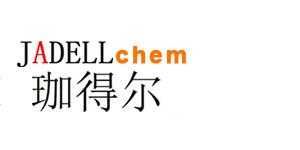Recombinant Human Interleukin-13 (CHO-expressed) 是一种 CHO 细胞来源的细胞因子,影响单核细胞形态,生长和表面抗原表达和表型,并引发 B 细胞增殖。
Synonyms
rHuIL-13; NC30
Species
HumanSource
CHO Accession
P35225 Gene ID
3596 Molecular Weight
25-45 kDa AA Sequence
SPGPVPPSTA LRELIEELVN ITQNQKAPLC NGSMVWSINL TAGMYCAALE SLINVSGCSA IEKTQRMLSG FCPHKVSAGQ FSSLHVRDTK IEVAQFVKDL LLHLKKLFRE GRFN Biological Activity
The ED50 is <15 ng/mL as measured by TF-1 cells, corresponding to a specific activity of >6.7 × 105 units/mg. Appearance
Lyophilized powder. Formulation
Lyophilized after extensive dialysis against PBS. Endotoxin Level
<0.2 EU/μg, determined by LAL method. Reconstitution
Reconstitute the lyophilized recombinant Human Interleukin-13 (CHO-expressed) (rHuIL-13) to 100 µg/mL using ddH2O or diluted with PBS. Storage & Stability
Lyophilized recombinant Human Interleukin-13 (CHO-expressed) (rHuIL-13) is stored at -20°C. After reconstitution, it is stable at 4°C for 1 week or -20°C for longer. It is recommended to freeze aliquots at -20°C or -80°C for extended storage. Shipping
Room temperature in continental US; may vary elsewhere. Background
Interleukin-13 is a cytokine which is secreted by activated T lymphocytes and primarily impacts monocytes, macrophages, and B cells. The circular dichroism spectrum confirms that interleukin-13 belongs to the alpha-helical family of cytokines. Interleukin- 13 affects the morphology, growth, and surface antigen expression and phenotype of monocytes and elicits B cell proliferation, Ig class switching to IgE synthesis, and enhanced production of IgG4 and IgM. In human macrophages and monocytes,hIL-13 has been shown to inhibit HIV replication. Human IL-13 also inhibits proinflammatory cyto-kines induced by LPS exposure, indicating poten-tial therapeutic applicationsas an anti-inflammatory agent[1]. |



